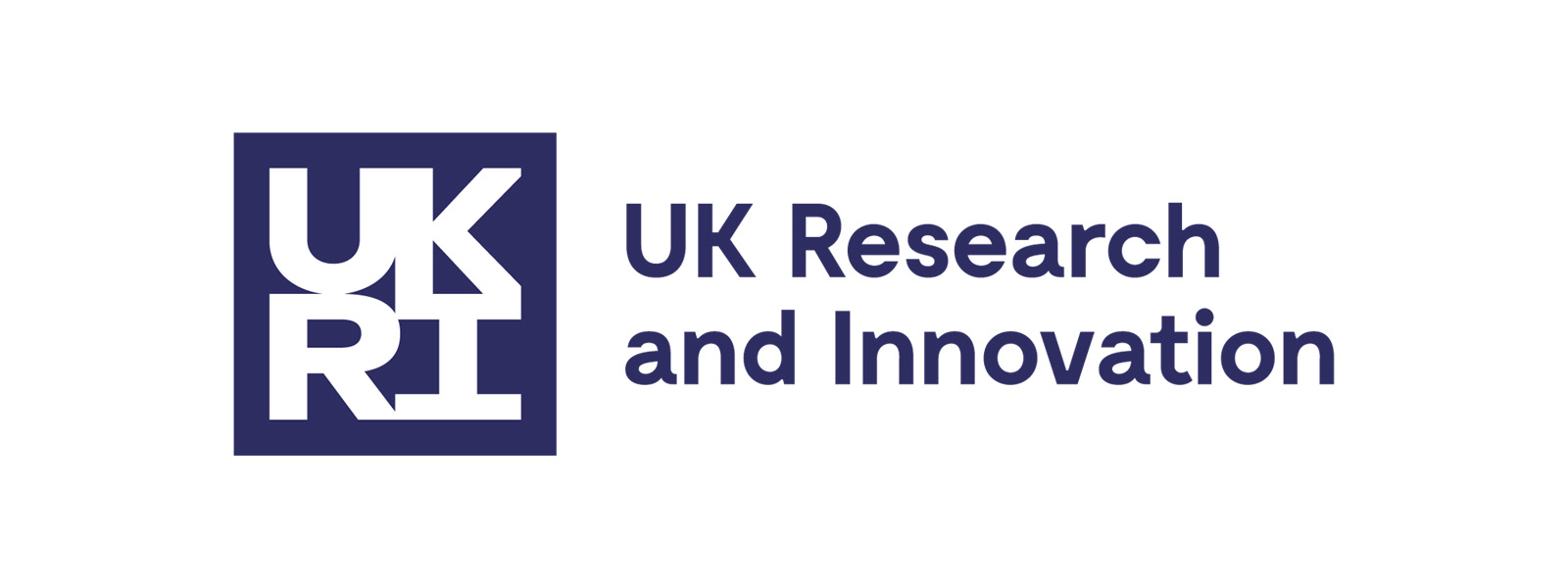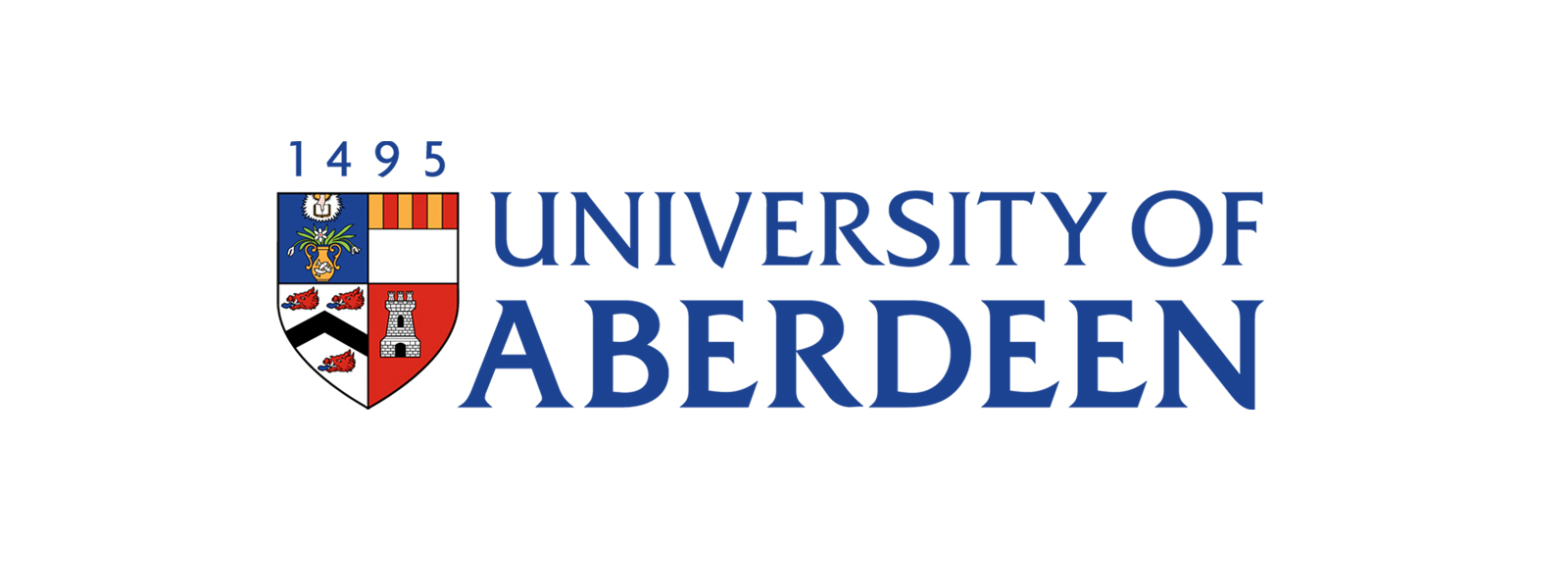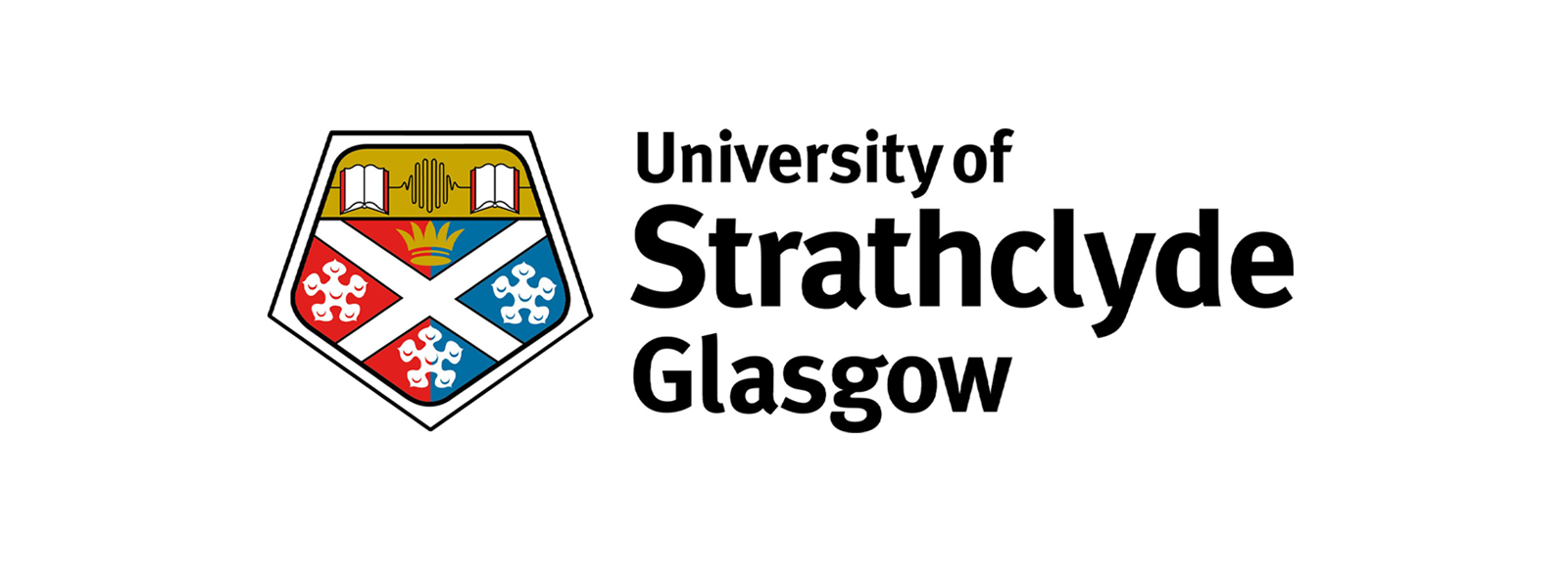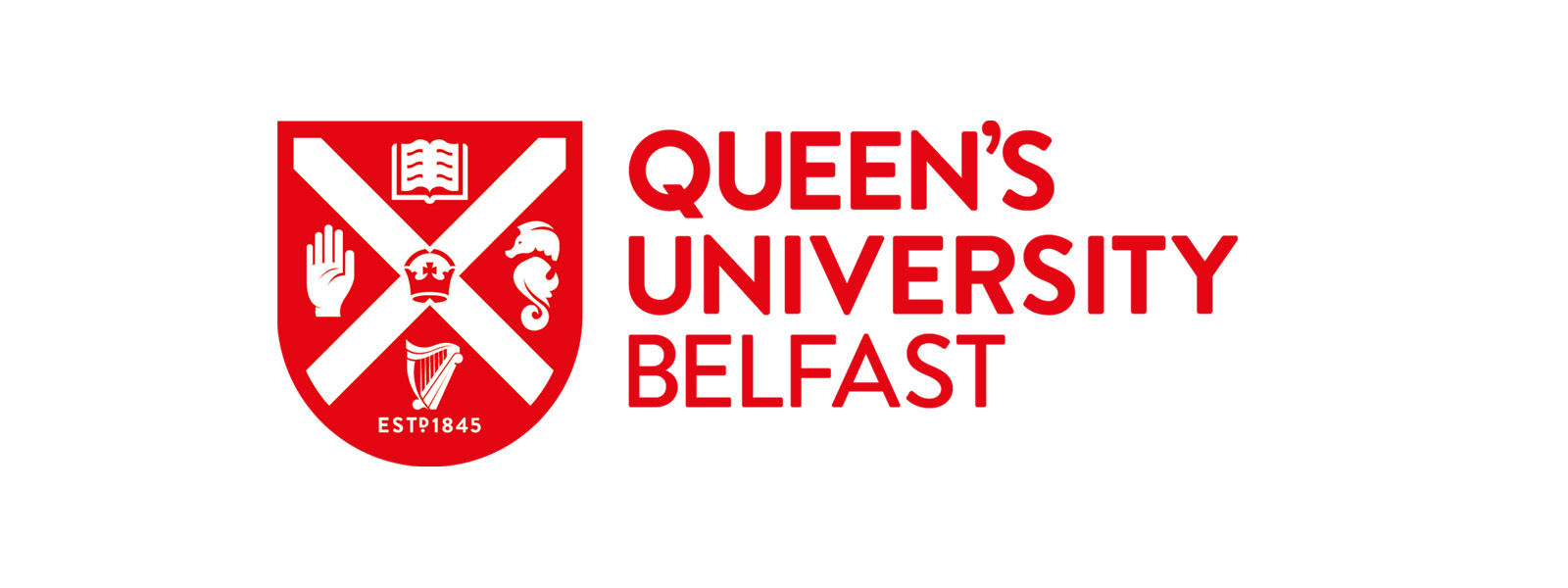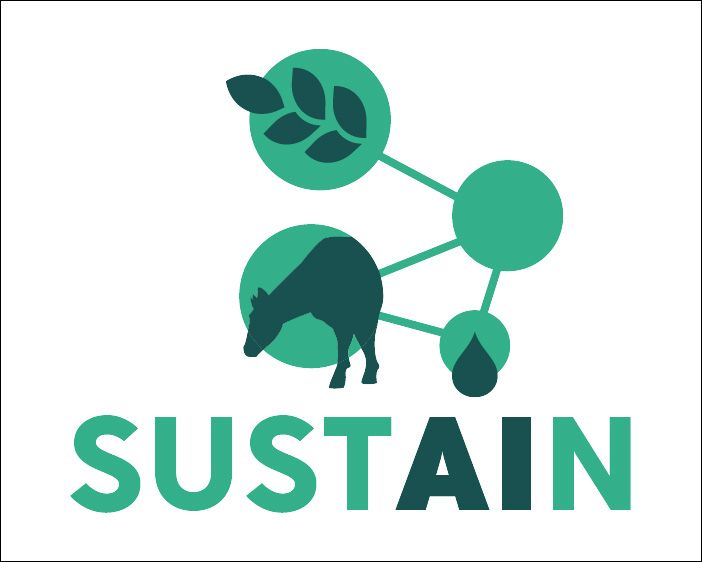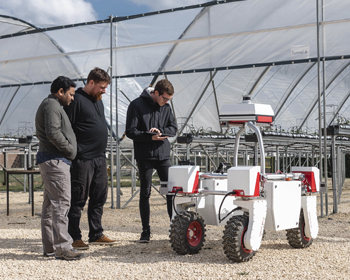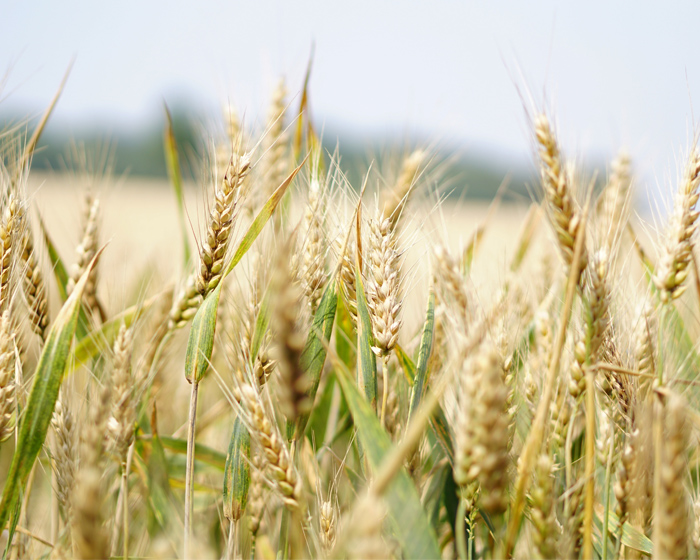/prod01/university-of-lincoln-cdn-pxl/media/responsive2017/research/newresearch/SUSTAIN,studentships,banner,1600X600.jpg )
SUSTAIN Studentships
Shaping the Future of Agri-food Technology
The University of Lincoln is leading on a new and transformative Centre for Doctoral Training (CDT), in collaboration with the University of Aberdeen, Queen’s University Belfast, and University of Strathclyde. The centre will conduct innovative, practical research into the application of Artificial Intelligence (AI) to real-world challenges in sustainable agri-food.
SUSTAIN (UKRI AI Centre for Doctoral Training in Sustainable Understandable agri-food Systems Transformed by Artificial INtelligence) unites the expertise and resources of four academic institutions, with support from industry partners. PhD projects will explore the technical and social science aspects of AI, alongside training in plant, animal and/or biosciences, tailored to each student's needs and interests.
As part of this collaboration, the University of Lincoln is offering a variety of fully funded, four-year PhD studentships. We are now recruiting for our second cohort, which will start in October 2025. Full details can be found below.
Our Partners
Automated Robotic Rapid evaporative ionisation mass spectrometry Meat Sampling
The project will develop and apply Machine Learning methods for computer vision, robot control, and analysis of rapid mass spectrometry data to instantly deliver assessments on the meat quality, geographical origin, and breed. This project will deliver, in combination with a major meat producer and a provider of scientific testing solutions, a commercially viable system suitable for deployment in the business of that major meat producer.
Find out more about the Studentship
Automated Robotic Rapid evaporative ionisation mass spectrometry Meat Sampling
Supervisory team: Dr Athanasios Polydoros, University of Lincoln; Dr Nick Birse, Queen's University Belfast; Professor Mark Swainson, University of Lincoln.
Meat remains a primary source of protein for much of the public, but as the public becomes increasingly aware of the environmental impacts around meat production, consumers are looking for meat that is not only of high quality but also has lower environmental impacts and higher ethical standards. Therefore, automated quality control is of high importance for meeting consumers’ requirements while minimising the environmental impact and maximising production.
Therefore, the project Automated Robotic Rapid Evaporative Ionization Mass Spectrometry Meat Sampling (AR2MS), will develop and apply Machine Learning methods for computer vision, robot control and analysis of rapid mass spectrometry data to instantly deliver assessments on the meat quality, geographical origin, and breed. This project will deliver, in combination with a major meat producer and a provider of scientific testing solutions, a commercially viable system suitable for deployment in the business of that major meat producer. Therefore, the key research areas of the project are on Machine learning methods for robot perception and control, AI data analysis and decision-making from rapid mass spectrometry data.
During the project, the successful candidate will have close collaboration with a multidisciplinary team of experts in AI, robotics, mass spectrometry and food manufacturing. Moreover, they will collaborate with the R&D team of Cranswick, a major meat producer, and they will be supported by the scientific testing provider in the development of the computational modelling needed to deliver a proof of concept for the quality control system. The successful candidate is expected to have experience in machine learning with additional experience in robotics and/or rapid mass spectrometry considered as a plus. The candidate will gain skills in computer vision, robotics, digital modelling, data management, systems integration and to a lesser extent, exposure to analytical systems used in food production systems.
Eligibility: Due to funder restrictions, this project is currently accepting applications from home applicants only.
Application Deadline: 12pm on Friday 2 May 2025
Trade-offs in land use: Utilising argumentation theory and dialogue to optimise for net-benefits
This PhD project will utilise advances in formal argumentation theory and dialogue to encode, reason, and explain the behaviour of multi-objective optimisation algorithms. The research will focus on optimising carbon storage, biodiversity enhancement, and economic yield from agriculture. The project aims to develop an optimisation model for land use, scale the model from catchment to national levels, quantify regional or national biodiversity, carbon storage, and yield profitability within the UK, and develop the model into a package potentially suitable for commercialisation.
Find out more about the Studentship
Trade-offs in land use: Utilising argumentation theory and dialogue to optimise for net-benefits
Supervisory team: Dr Daniel Magnone, University of Lincoln; Professor Nir Oren, University of Aberdeen; Professor Nir Oren, University of Aberdeen
The UK’s land use can be considered a complex, multiobjective optimisation problem, balancing economic yield, biodiversity enhancement, and carbon storage. With the recent introduction of the Environmental Land Management Scheme (ELMS), the need for a decisionsupport system to help stakeholders understand the impacts and trade-offs of land parcel allocation is clear and timely.
This PhD project will utilise advances in formal argumentation theory and dialogue to encode, reason, and explain the behaviour of multi-objective optimisation algorithms. The research will focus on optimising carbon storage, biodiversity enhancement, and economic yield from agriculture. The project aims to develop an optimisation model for land use, scale the model from catchment to national levels, quantify regional or national biodiversity, carbon storage, and yield profitability within the UK, and develop the model into a package potentially suitable for commercialisation.
The student will gain a comprehensive understanding of sustainable landscapes within the UK and the necessary subsidy frameworks to achieve optimal conditions. They will review literature to understand the constraints around land parcel allocation and the objectives of different stakeholders, learn how different multi-objective optimisation techniques work, undertake research into formal argumentation, develop dialogical techniques to present reasoning to stakeholders, evaluate the effectiveness of explanations on stakeholder understanding and decision-making, and apply the model to a real-world problem. This project offers a unique opportunity to contribute to a vital area of environmental research and develop a wide range of skills in optimisation, argumentation theory, and stakeholder engagement.
Eligibility: Due to funder restrictions, this project is currently accepting applications from home applicants only.
Application deadline: 12pm on Friday 2 May 2025
This project is currently awaiting final confirmation of industry funding with confirmation expected mid-April. If the CDT has not secured funding, this project may be withdrawn. In this case we will update the status promptly and inform all applicants.

